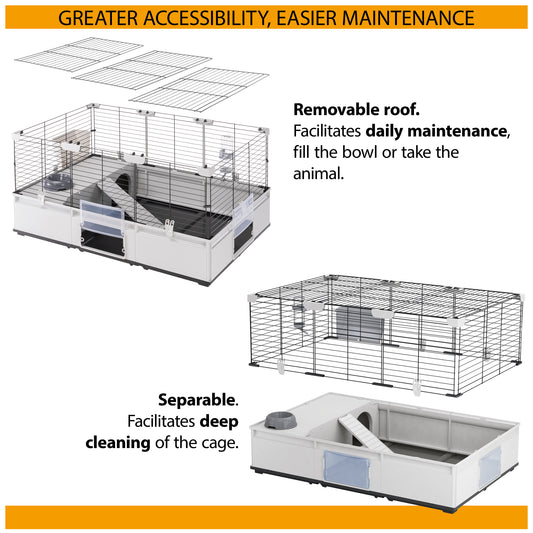How to help your dog live longer
The average life expectancy of a dog depends a lot on their breed. Research published in April 2022 revealed how the UK’s dogs differ in life expectancy from the Jack Russell Terrier (12.72 years) to the Pug (7.65 years). Crossbreeds generally live longer than purebreds because of their hybrid vigour and it’s not unusual to find them living to their mid-teens. A good innings for a dog is still a mere fraction of our own lifetimes, which is why we’re going to share the secrets of longevity with you. This is how to help your pet live as long and as healthy a life as possible.
A weighty issue
If your dog is overweight their life span can be up to two and a half years shorter than that of a dog of a healthy weight. It might not seem much but if you think of it in human terms, it would be 10-15 years, which is a considerable chunk of time.
Overweight dogs are at far greater risk of developing chronic illnesses, such as arthritis, diabetes, high blood pressure, heart disease and certain types of cancer.
If you think your dog might be carrying a few extra pounds get them checked over by your vet who will weigh them and assess their body condition. If they need to lose weight your vet will be able to recommend the best way to do this and will invite your pet back for regular weigh-ins. Many vet surgeries have their own weight-loss clinics where you can take your pet to be weighed weekly while receiving advice and support.
Visit the vet
Regular check-ups are a good way for your vet to spot any early signs of illness and many life-threatening conditions can be identified and treated before they become a problem. As well as picking up early warning signs, regular vet checks will ensure your pet is adequately protected through vaccinations and parasite control.
Once your dog is a senior it is worth visiting your vet every six months to keep on top of the ageing process. By catching any abnormalities before your pet begins to show signs of illness, they can receive treatment that could prolong their life. If you visit your vet regularly and know what’s normal for your dog it will be easier to spot any subtle changes.
Keeping fit
Physical activity will help maintain a healthy bodyweight along with psychological benefits to help keep your dog young. Daily exercise helps to provide mental stimulation for your dog by way of the smells they encounter, as well as being a healthy way to expel energy. It’s also a great opportunity for dog and owner bonding. Vary the activities you do with your dog and the locations you visit so that things are always kept interesting for you both.
Brain games
Dogs can suffer from cognitive decline or ‘doggie dementia’ later in life so it’s important to keep their minds active. A mental workout is just as important as a physical one for helping to slow down the ageing process.
Training sessions are a great way to keep your dog’s brain engaged and a dog is never too old to learn a new trick. Puzzle toys, food balls and interactive feeders are all a great way of getting your dog to use their brain in a fun way.
If mobility is an issue with your dog don’t force them to go on long walks that could result in them struggling. Instead, find a short route with interesting smells and just go at your pet’s pace. All that sniffing will soon tire them out!
Dental hygiene
Poor dental hygiene can result in greater problems than just bad breath. Dogs can develop painful abscesses or infections or lose teeth if early signs of dental disease are not spotted. As well as regular brushing at home, your dog should have their teeth checked by your vet every year so that any problems can be identified early and treated quickly. Untreated tooth decay or gum disease can lead to serious issues elsewhere in the body, such as heart and kidney problems.
Brush up on grooming
Grooming isn’t just about making your pet look neat and tidy, it’s an important part of keeping their coat and skin healthy too. Brushing your dog at least once a week with a good rubber dog brush will help to stimulate their circulation and massage their muscles.
While you are brushing your dog, it is also a good opportunity to check them over for any lumps and bumps. Any changes to your dog’s coat could be an early indicator of a health problem so if you spot anything you’re not sure about, see your vet.
If you enjoyed this article, you may be interested in:









